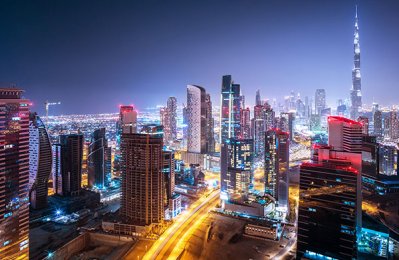Dubai is forecasting a higher economic growth of 3.1 per cent during 2017 and plans to provide an economic outlook twice every year in a bid to promote transparency.
The emirate’s economy grew by 2.7per cent in 2016 despite declining oil prices, sluggish growth in developed as well as many emerging economies, and a mere 1.7per cent growth in global trade, said Sheikh Ahmed Bin Saeed Al Maktoum, president of Dubai Civil Aviation, chief executive of the Emirates Group and chairman of the Economic Development Committee in Dubai.
Delivering his keynote at the ‘UAE Economic Outlook 2017’ hosted jointly by the Dubai Department of Economic Development and the Abu Dhabi Department of Economic Development, Sheikh Ahmed explained that the economic outlooks to be published in January and October will shed light on growth opportunities in the emirate both at the macro-economic and sectoral levels and against the global economic backdrop.
Sheikh Ahmed asserted that sustainability and flexibility are the most notable characteristics of Dubai’s ongoing economic and social transformation.
"More than three decades ago, our leadership put diversification on the top of the development pyramid in Dubai and the growth vision and strategies adopted since then have all focused on accelerated and sustainable growth,” Sheikh Ahmed said.
“It has led to faster integration of the emirate’s economy into the global economy and quantitative as well as qualitative growth away from oil. Real economic growth has averaged five per cent a year, while the importance of non-oil economic activities has grown steadily. Our efforts at economic diversification continue unabated with a target of increasing the contribution of the non-oil sectors to UAE GDP from 70per cent today to 80per cent during the next 15 years,” he added.
“During the past year, the UAE continued the course of diversification and progress and achieved new milestones. This includes a jump of 8 points in the World Bank Doing Business report, from the 34th to now the 26th easiest country in the world for doing business, and ahead of any other Arab country. The World Bank also recognised the UAE as one of the top 10 most improved business environments over the past year,” he stated.
Sheikh Ahmed added that the UAE also topped the list of countries in the Middle East and North Africa region Global Entrepreneurship Index Report 2016, and ranked 19th in the world ahead of countries such as Norway, South Korea, Turkey and Japan.
According to the World Competitiveness Report 2016-17, the UAE is second only to Singapore in the Air Transport Infrastructure Quality index that measures the general level of infrastructure in airports and their compliance with international standards.
Sheikh Ahmed said that the emirate will continue to embrace the world economy through welcoming trade, investment, people and ideas. Environmental sustainability is another guiding principle of the UAE 2021 National Agenda that was announced by Sheikh Mohammed Bin Rashid Al Maktoum, Vice-President and Prime Minister of the UAE and Ruler of Dubai, to entrench the principle of sustainability in the march towards a diversified and competitive green economy in the UAE, he added.
“We are working to ensure sustainable development while preserving the environment, and to achieve a perfect balance between economic and social development through improving the quality of air, preserving water resources, increasing the contribution of clean energy, and implementing green growth plans,” Sheikh Ahmed said.
“We continue to work closely with the private sector to boost productivity growth and improve the quality of public services. This is the strategic goal that inspired Dubai’s Public-Private Partnership Law where we seek a continuous model for exchange of knowledge and experience between the two sectors,” he concluded. – TradeArabia News Service
Dubai forecasts 3.1pc economic growth this year

Dubai’s economy grew by 2.7per cent in 2016 despite<br> declining global challenges, says Sheikh Ahmed

&uuid=(email))